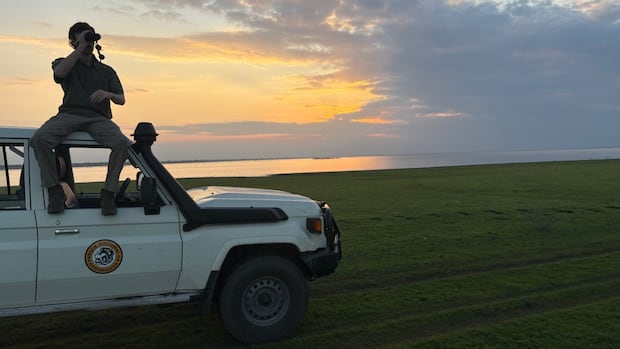Science isn’t just done in labs. Sometimes you need to get your hands dirty to learn

The traditional image of a scientist often involves a white lab coat, a microscope, and an array of test tubes in a laboratory setting. While this is certainly a common depiction, there is a whole other side to scientific research that involves fieldwork and exploration in the natural world.
Scientists venture out into nature armed with cameras, sound recorders, and other instruments to actively observe the subjects that interest them. This could mean crawling under bushes to study wild dogs in Africa, recording the communication of turtles in a Canadian park, or using high-tech scanners to virtually unwrap ancient Incan mummies in Peru. These adventures can sometimes lead to unexpected surprises, like discovering unexploded bombs while testing drone technology in a bog near Ottawa.
Fieldwork is essential for gathering data that can later be examined in the laboratory. While some may question the relevance of studying seemingly obscure topics, all scientific investigations aim to uncover the fundamental workings of nature. As naturalist John Muir famously said, “When one tugs at a single thing in nature, he finds it attached to the rest of the world.”
Science allows us to understand the intricate connections that exist in the natural world, from the behavior of insects in a rainforest to the interactions between different ecosystems. By studying these connections, we can gain insight into how life on Earth is intertwined with geological phenomena, atmospheric conditions, and oceanic processes.
On a larger scale, astronomers explore the vast expanse of the universe, observing our planet as it orbits a star among billions of other stars in a galaxy that is just one of many in an ever-expanding universe. As we face challenges like climate change, population growth, and resource depletion, it is crucial to have a scientifically literate society that can make informed decisions to address these issues.
For 50 years, Quirks & Quarks has been at the forefront of scientific discovery, sharing the latest advances and insights from researchers around the world. As we look ahead to our 50th birthday celebration in October, we are excited to explore new discoveries and breakthroughs in various fields of science.
There is still much to learn about the universe, from the mysteries of dark matter and dark energy to the search for extraterrestrial life. Quirks & Quarks will continue to bring you the latest updates and insights from the world of science, keeping you informed about the wonders of the natural world and the exciting discoveries that lie ahead.




